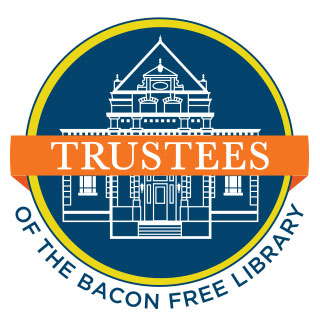CHOOSE CURIOSITY
By Martha E. Fagan, RN, BSN
Curiosity may have killed the cat but it’s a great way to discover new things about yourself, those you love, your surrounding community and the world at large. Curiosity drives all aspects of learning, relationships, innovation and adaptation. Choosing curiosity in the time of COVID-19 can be a great way to help yourself discover what serves you and your family best right now.
Let’s be honest, we wouldn’t choose to be entering week 9 of these restrictions and all that goes along with them. We’re here in the midst of this trying to figure out the best way to survive, hopefully thrive, within the confines. Curiosity may be just the way to do that— asking questions, seeking new ways to see and do things.
An article in the Harvard Business Review (September/October 2018) entitled “ Why Curiosity Matters.” states that “…curiosity is much more important to an enterprise’s performance than was previously thought. That’s because cultivating it at all levels helps leaders and their employees adapt to uncertain market conditions and external pressures: When our curiosity is triggered, we think more deeply and rationally about decisions and come up with more-creative solutions.”
Curiosity is often described as novelty-seeking and being open to new experiences. According to the VIA Institute on Character, “There are two key components to curious individuals: They are interested in exploring new ideas, activities and experiences, and they also have a strong desire to increase their own personal knowledge.” Ordinarily there are countless ways for us to experiment and spark our curiosity…we can explore a new city or town, visit a new museum, try a new restaurant, pursue a new hobby, or take a new exercise class…the choices are endless.
As we shelter in place our curiosity is now limited to the microcosm of our home and restricted surrounding environment. Suddenly our questions, discoveries and learning are focused on our simple daily needs, our chores, our family members, and working from home.
In the past two years there’s been some turn over in the neighborhood where my husband and I live, so we have new neighbors. The two families closest in proximity to us each have 2 children under the age of 6. We live on a cul-de-sac, which it seems is the perfect place for a little one to glide on a scooter or learn to ride a bike! It’s been delightful to watch the children as they wobble along, fall, get up and ultimately discover their balance. Their untapped curiosity and excitement for what they’re learning is palpable…young children burst with curiosity in every moment. When I’m lucky enough to be outside with them (socially distanced and masked up of course) they show me all the things they’ve learned and discovered and then ask me a million questions.
The kids don’t fully understand why but they’re thrilled Mommy and Daddy are home playing with them. The parents however look and feel exhausted! They tell me they’re happy to have a break in the day and be out in the sunshine with their little ones AND they’re feeling pressured to get back into the house to their desks and all the work that waits. Both families have two working parents in jobs that can successfully be done from home. This is a blessing and a curse—a blessing as their incomes continue, a curse as there are no boundaries right now of day or night or weekends, no time out of the house, no school, no socializing—time feels surreal and blurred and the workload is enormous. They tell me they could be working day and night as they can’t seem to catch up with all the tasks at hand in addition to their jobs…namely the care of their children, cooking, cleaning and let’s not forget, sleep?
So what does this neighbor story have to do with curiosity? At the risk of sounding a bit like Pollyanna, I’d like to suggest that curiosity can be a place to start as a way to spark creativity and thinking outside the box helping us find ways to function at our best in these circumstances. We need to be able to think anew and problem solve innovatively as everything is shaken up and “normal routines” are a memory.
We can easily find ourselves functioning from a place of overwhelm and exhaustion during these unplanned and unprecedented times. Being curious by asking ourselves questions can be a way to calm the feeling of being overwhelmed. Curiosity is enlivening rather than anxiety producing and it can foster a sense of control. It also supports self-reflection as we ask ourselves how we’re showing up for our loved ones and ourselves.
So now is the perfect time to ask questions about “why” and “how” we’re doing things. Is there a better, more efficient, possibly even more enjoyable, way to proceed? Curiosity is so crucial now because it help us generate alternatives.
- Can our children do some things for themselves that we’ve automatically done for them? Or can we do more chores as a family?
- Is there a way to set a schedule so we find some time for daily self-care?
- Can we experiment with new healthier, or more comforting, recipes using what’s available?
- Is there a documentary to watch or a book to read that will spark new ideas about something we’re interested in, providing knowledge and pleasure?
- Are there ways my partner and I can trade off on some responsibilities, allowing us both to have some alone time?
- Is my current default routine working for me now?
- How are my friends managing, can I learn something helpful from them?
Curiosity asks us to inquire or notice with an open mind, explore options and then take action.
What better time to strengthen our curiosity muscle?
Martha Fagan is the Vice Chair of the Bacon Free Library. She may be reached through her email her at mefagan.bfl@gmail.com


